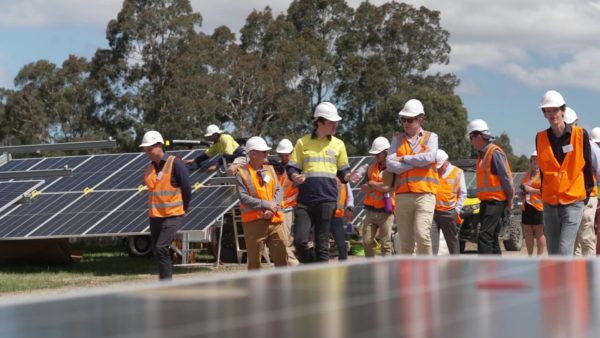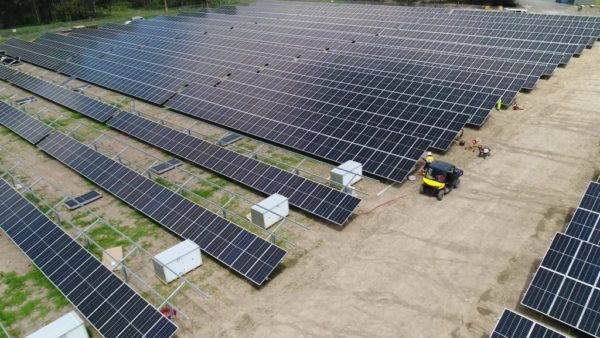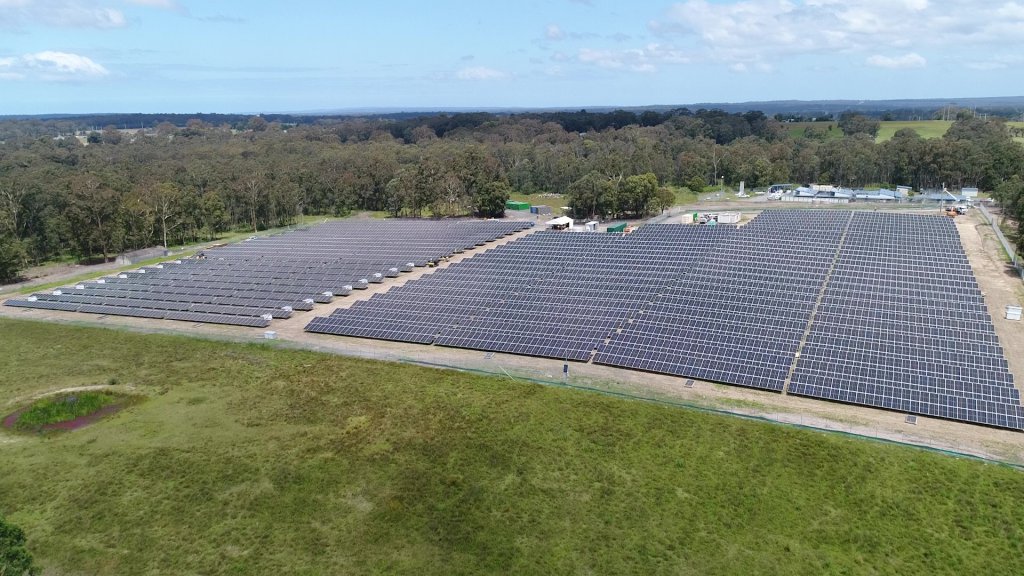The Shoalhaven Solar Farm, made possible through a collaboration between not-for-profit solar company Repower Shoalhaven, Melbourne-based energy retailer Flow Power and Shoalhaven City Council is set to power up next month and will play a key role in providing the City of Sydney with 100% renewable electricity.
Set on 10 hectares of land owned by Shoalhaven City Council, which has granted a 30-year-lease on the property, the solar farm was co-developed by social enterprise Repower Shoalhaven, which raised $500,000 through community investors, and Flow Power which contributed $4.5 million.
The facility, near Nowra on the south-east New South Wales coast, comprises about 8,000 solar panels which are expected to generate an estimated 5.9 GWh of clean electricity annually and reduce carbon dioxide emissions by 5,500 tonnes per year.
The electricity generated at the facility is being sold via power purchase agreements (PPAs) through Flow Power. Already 20 per cent of the project’s output has been purchased by the City of Sydney under a PPA signed in 2019 while the other 80% will be offered to local businesses.
Flow Power chief executive officer Matthew van der Linden said the solar farm exemplifies a true community project and provides a roadmap for other Australian communities looking to launch their own renewable projects.
“The Shoalhaven Community Solar Farm is the first renewable energy project of its kind in Australia. These projects present a challenge, but the rewards are immense,” he said.
“We’re incredibly grateful for the support of visionary organisations, like the City of Sydney, who recognise, not only the cost and sustainability benefits for themselves, but the flow-on effects for other communities.
“If organisations can follow in the city’s footsteps, a net-zero carbon future is achievable.”

Image: Flow Power
City of Sydney CEO Monica Barone said the city, which helped subsidise the solar farm’s renewable certificates cost, allowing the farm to sell off some of its surplus power at a competitive rate to local customers, was proud to have played a part in the facility’s development.
“When the City of Sydney switched to 100% renewable electricity last year, we did so by signing an innovative, first-of-its-kind, $60 million power purchase agreement with Flow Power,” she said.
“The agreement not only means that all of our operations run on 100% renewable electricity, at a saving of half a million dollars a year, but we’re also actively contributing to developments like this regional NSW renewable energy initiative.
“It’s the first of its kind in the region but I’m sure it will not be the last.”
The City of Sydney also purchases renewable energy from Sapphire wind farm in Glen Innes and Spark Infrastructure’s 120 MW Bomen Solar Farm near Wagga Wagga as part of its $60 million agreement with Flow Power.

Image: Flow Power
Repower Shoalhaven chair Walter Moore said as well as delivering renewable energy for the City of Sydney, the new solar farm will also provide power to the University of Wollongong’s Shoalhaven and Bega campuses and the graduate school of medicine accommodation in Nowra by Christmas.
“This is an amazing achievement when you think construction of the 8000-panel farm started in July,” he said.
“It shows that the local community and regional businesses have a desire to source locally produced, clean energy, even in the absence of any clear government policy or financial support.
“The SSF also provides a working model where community groups and businesses can collaborate to help reduce our carbon emissions and energise the local economy at the same time.”
Installation of the solar modules at the Shoalhaven Solar Farm is scheduled to be finished this month, with the farm expected to be switched on in early December.
This content is protected by copyright and may not be reused. If you want to cooperate with us and would like to reuse some of our content, please contact: editors@pv-magazine.com.









By submitting this form you agree to pv magazine using your data for the purposes of publishing your comment.
Your personal data will only be disclosed or otherwise transmitted to third parties for the purposes of spam filtering or if this is necessary for technical maintenance of the website. Any other transfer to third parties will not take place unless this is justified on the basis of applicable data protection regulations or if pv magazine is legally obliged to do so.
You may revoke this consent at any time with effect for the future, in which case your personal data will be deleted immediately. Otherwise, your data will be deleted if pv magazine has processed your request or the purpose of data storage is fulfilled.
Further information on data privacy can be found in our Data Protection Policy.